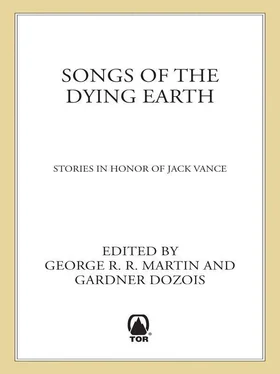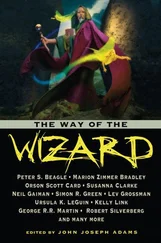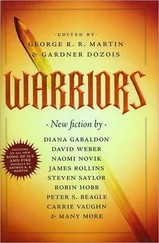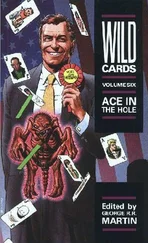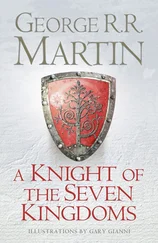Only then did Farfal walk into the inner room in the cottage, into his father’s inner sanctum a million years before.
A bang on the outer door.
“Balthasar?” It was the voice from the courtyard. “I gave you the day you begged for, wretch. Now give me my thirty stones. Give me my stones or I shall be as good as my word — your sons will be taken off-world, to labour in the Bdellium Mines of Telb, and the women shall be set to work as musicians in the pleasure palace of Luthius Limn, where they will have the honour of making sweet music while I, Luthius Limn, dance and sing and make passionate and athletic love to my catamites. I shall not waste breath in describing the fate I would have in store for your servants. Your spell of hiding is futile, for see, I have found this room with relative ease. Now, give me my thirty stones before I open the door and render down your obese frame for fat and throw your bones to the dogs and the deodands.”
Farfal trembled with fear. Time, he thought. I need Time. He made his voice as deep as he could, and he called out, “One moment, Luthius Limn. I am engaged in a complex magical operation to purge your stones of their negative energies. If I am disturbed in this, the consequences will be catastrophic.”
Farfal glanced around the room. The only window was too small to permit him to climb out, while the room’s only door had Luthius Limn on the other side of it. “Unfortunate indeed,” he sighed. Then he took the bag his father had given to him and swept into it all the trinkets, oddments and gewgaws he could reach, still taking care not to touch the green flute with his bare flesh. They vanished into the bag, which weighed no more and seemed no more full than it had ever done.
He stared at the casement in the centre of the room. The only way out, and it led to Nothing, to the end of everything.
“Enough!” came the voice from beyond the door. “My patience is at an end, Balthasar. My cooks shall fry your internal organs tonight.” There came a loud crunching against the door, as if of something hard and heavy being slammed against it.
Then there was a scream, and then silence.
Luthius Limn’s voice: “Is he dead?”
Another voice — Farfal thought it sounded like one of his half-brothers — said, “I suspect that the door is magically protected and warded.”
“Then,” boomed Luthius Limn, decisively, “we shall go through the wall.”
Farfal was unfortunate, but not stupid. He lifted down the black lacquer box from the nail upon which his father had hung it. He heard something scuttle and move inside it.
“My father told me not to move the casement,” he said to himself. Then he put his shoulder against it and heaved violently, pushing the heavy thing almost half an inch. The darkness that filled the casement began to change, and it filled with a pearl-grey light.
He hung the box about his neck. “It is good enough,” said Farfal the Unfortunate, and, as something slammed against the wall of the room he took a strip of cloth and tied the bag that contained all the remaining treasures of Balthasar the Canny about his left wrist, and he pushed himself through.
And there was light, so bright that he closed his eyes, and walked through the casement.
Farfal began to fall.
He flailed in the air, eyes tightly closed against the blinding light, felt the wind whip past him.
Something smacked and engulfed him: water, brackish, warm, and Farfal floundered, too surprised to breathe. Then he surfaced, his head breaking water, and he gulped air. And then he pushed himself through the water, until his hands grasped some kind of plant, and he pulled himself, on hands and feet, out of the green water, and up onto a spongy dry land, trailing and trickling water as he went.

“The light,” said the man at Denny’s. “The light was blinding. And the sun was not yet up. But I obtained these,” he tapped the frame of his sunglasses, “and I stay out of the sunlight, so my skin does not burn too badly.”
“And now?” I asked.
“I sell the carvings,” he said. “And I seek another casement.”
“You want to go back to your own time?”
He shook his head. “It’s dead,” he said. “And all I knew, and everything like me. It’s dead. I will not return to the darkness at the end of time.”
“What then?”
He scratched at his neck. Through the opening is his shirt I could see a small, black box, hanging about his neck, no bigger than a locket, and inside the box something moved: a beetle, I thought. But there are big beetles in Florida. They are not uncommon.
“I want to go back to the beginning,” he said. “When it started. I want to stand there in the light of the universe waking to itself, the dawn of everything. If I am going to blinded, let it be by that. I want to be there when the suns are a-borning. This ancient light is not bright enough for me.”
He took the napkin in his hand then, and reached into the leather bag with it. Taking care to touch it only through the cloth, he pulled out a flute-like instrument, about a foot long, made of green jade or something similar, and placed it on the table in front of me. “For the food,” he said. “A thank you.”
He got up, then, and walked away, and I sat and stared at the green flute for so long a time; eventually I reached out and felt the coldness of it with my fingertips, and then gently, without daring to blow, or to try to make music from the end of time, I touched the mouthpiece to my lips.

Afterword:
I would have been thirteen. The anthology was called Flashing Swords , the story was called “Morreion,” and it started me dreaming. I found a British paperback copy of The Dying Earth , filled with strange misprints, but the stories were there and they were as magical as “Morreion” had been. In a dark second-hand bookshop where men in overcoats bought used pornography, I found a copy of The Eyes of the Overworld and then tiny dusty books of short stories—“The Moon Moth” is, I felt then and feel now, the most perfectly built SF short story that anyone has ever written — and around that point Jack Vance books began to be published in the UK and suddenly all I had to do to read Jack Vance books was buy them. And I did: The Demon Princes , the Alastor trilogy and the rest. I loved the way he would digress, I loved the way he would imagine, and most of all I loved the way he wrote it all down: wryly, gently, amused, like a god would be amused, but never in a way that made less of what he wrote, like James Branch Cabell but with a heart as well as a brain.
Every now and again I’ve noticed myself crafting a Vance sentence, and it always makes me happy when I do — but he’s not a writer I’d ever dare to imitate. I don’t think he’s imitable.
There are few enough of the writers I loved when I was 13 I can see myself going back to in twenty years from now. Jack Vance I will reread for ever.
— Neil Gaiman
A variety of mollusc valued for their succulent flesh. It was once proposed that glace possessed a form of intelligence, this based on the fact that many who consumed them raw reported experiencing poignant emotional states and hearing what seemed to be pleas in an unknown tongue. For this reason, they are now served either fried or broiled. As to the question of their sentience, their severely depleted population prevents a comprehensive study.
The gid is a hybrid of man, gargoyle, whorl, and leaping insect. In their “newt” stage they are relatively harmless, yet they inspire an atavistic fear. Once they have tasted human blood a metamorphosis occurs within minutes and they acquire mental powers that permit them to dominate lesser minds with ease. The physical changes are, reputedly, also extreme, but this is unproven, since a mere handful of men and women have survived the sight of an adult gid and none have been capable of reporting coherently on the particulars. The “newt” gid is copper in color, with black facial markings. As to the adult’s coloration, we have only the word of Cotuim Justo, blind since birth, who claimed that the beast’s colors “burned my eyes.”
Читать дальше
